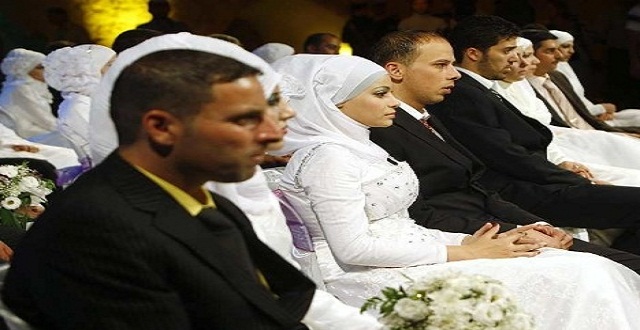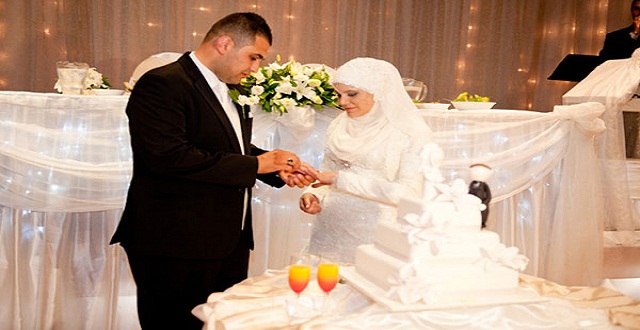What is the philosophy behind temporary marriage?
It is a general and universal rule that if man’s natural impulses are not satiated in the correct manner, he will resort to incorrect and devious means in order to satiate himself. In reality, the natural desires cannot be eliminated; and upon the supposition that they could be eliminated, such an act would not at all be rational for then it would be tantamount to opposing the laws of Creation.
Thus, the correct option would be to satiate them in a rational manner and utilize them constructively.
It cannot be denied that sexual desire is one of the strongest natural impulses existing within man to the extent that some of the psychoanalysts are of the opinion that it is the only primitive and primary impulse within man while all the other impulses are secondary in nature.
Now, in numerous circumstances and environments, a great number of individuals belonging to a particular age-group are unable to enter into a permanent marriage, or married individuals, who have embarked upon protracted journeys or other commitments, are faced with the dilemma of their sexual desires remaining unfulfilled. This issue has become especially acute in our times wherein the matrimonial age, due to the protracted period of education and other intricate social issues, has gone up and rarely can a youth enter into wedlock at a lower age during which he faces a period of heightened sexual tendencies.[divider]
What should be done in such circumstances?
Should the people be encouraged to suppress this impulse (like the monks and the nuns)?
Or should they be left free to indulge in profligacy, and the ignominious and scandalous scenarios that presently exist be permitted?
Or that we should adopt a third alternative – one, which neither brings about the problems of a permanent marriage nor leads to sexual licentiousness?
In summary, permanent marriage, in itself, has never been able to cater to the sexual needs of all the sections of the society – neither in the past nor today. We stand at a crossing – either to permit ‘prostitution’ (just as the material world of today has endorsed it and has officially recognized it) or accept the idea of temporary marriage. Those who oppose both prostitution as well as temporary marriage have not presented a solution for this problem.
The blueprint of temporary marriage neither possesses the strict conditions that are associated with permanent marriage so as to be inharmonious with educational engagements or lack of financial affluence, nor does it lead to the harmful ways of sexual wantonness and prostitution.[divider]
Criticisms levelled against temporary marriage
However, there are certain objections and criticisms that need to be discussed, albeit concisely:
1. At times it is asked, what is the difference between ‘temporary marriage’ and ‘prostitution’? Both of them can be considered to be prostitution in exchange for a certain sum of money. This kind of marriage is, in fact, a veil over prostitution and sexual pollution! The only difference between the two lies in the recitation of two simple sentences (recitation of the marriage formula.)
Answer: Those who make this criticism apparently do not have any awareness about the concept of temporary marriage. This is because temporary marriage, like permanent marriage, is governed by rules and ordinances. A woman entering into a temporary marriage must make herself available solely for this husband for the entire duration of the marriage, and must necessarily observe the ‘Iddah after the termination of the term. In other words, she has to refrain from entering into any kind of matrimony with any other male for a period of forty five days at least, so that it becomes clear in case she bears the child of the first person.
The observance of this ‘Iddah is obligatory upon her even if she had resorted to the use of contraceptives to prevent conception. If she happens to conceive, this child like the children that result from a permanent marriage, would have to be looked after and supported by the man, and all the rules that are associated with children would come to be associated with this child too. However, prostitution does not have any of these rulings associated with it. Can these two issues ever be compared with each other?
Of course, temporary marriage does differ from permanent marriage with respect to the issues of inheritance (between the temporary spouses),23 maintenance, and some other rulings; however these differences do not place it on par with prostitution. In any event, temporary marriage is a form of marriage which possesses its own ordinances and stipulations.
2. Temporary marriage becomes a reason for some lustful individuals to misuse this ruling and use it as a pretext to indulge in every kind of prostitution and profligacy; consequently respectable individuals never enter into it while women of good repute tend to avoid it.
Answer: Is there any law in the world that has not been abused? Should a rule, which is a social requirement and is in accordance with the human innate, be suppressed because of it being misused, or should those, who misuse it, be taken to task?
Supposing some individuals misuse the pilgrimage to the House of Allah and engage themselves in peddling drugs in the course of their trip; should the people be prevented from participating in this great Islamic congregation or should those, who misuse the occasion, be brought to justice?
If we observe that nowadays respectable individuals experience an aversion with respect to this Islamic statute, the fault lies not in the statute but in those who act upon it, or to put it more correctly, in those who misuse it. If, in our present day society, temporary marriage were to be portrayed in its correct form and the Islamic government were to implement it under the governance of specific rules and stipulations, not only would its misuse be prevented but even respected individuals (during social exigencies) would not experience an aversion towards it.
3. They say: Temporary marriage results in guardian-less individuals, such as illegitimate children, being handed out to the society.
Answer: In view of what we have mentioned previously, the answer to this objection is quite plain since according to (man-made) law, illegitimate children are neither affiliated to the father nor to the mother whereas children resulting from temporary marriage do not possess the slightest difference from those that result from permanent marriage – neither with respect to inheritance nor with respect to social rights and privileges – apparently this objection stems from their lack of attention towards this reality.[divider]
Russell and temporary marriage
In conclusion it appears expedient to present what Bertrand Russell, the well-known English scholar, has stated in his book Marriage and Morals under the topic Trial Marriage. After mentioning the scheme of Ben B. Lindsey, one of the judges for juvenile delinquency, in connection with ‘companionate marriage’, he states as follows:
“His view is that young people should be able to enter upon a new kind of marriage distinguished from ordinary marriage by 3 characteristics. First, that there should be for the time being no intention of having children and that accordingly the best available birth-control information should be given to the young couple. Second, that so long as there are no children and the wife is not pregnant divorce should be possible by mutual consent. And third, that in the event of divorce, the wife should not be entitled to alimony.”
After mentioning Lindsay’s idea, which was presented above, Russell goes on to state as follows: He holds, and I think rightly, that if such an institution were established by law, a very great many young people, for example, students at universities, would enter upon comparatively permanent partnerships, involving a common life, and free from the Dionysiac characteristics of their present sex relations.
As you notice, the above plan with respect to temporary marriage is in many ways similar to the Islamic concept of temporary marriage except that the conditions and stipulations which Islam has laid out for it are more lucid and perfect in various respects. In the Islamic temporary marriage there is no prohibition in preventing conception, separation is simple and alimony too is not obligatory.




